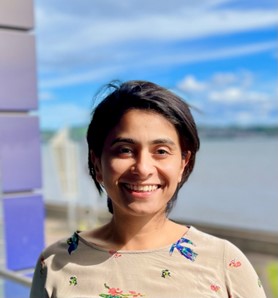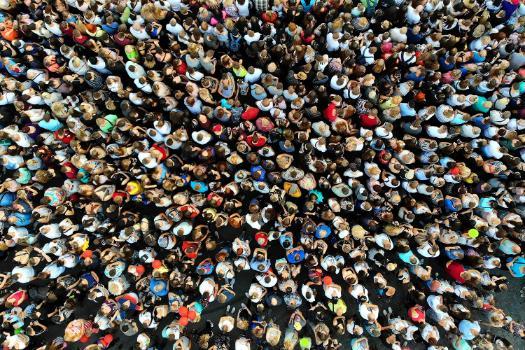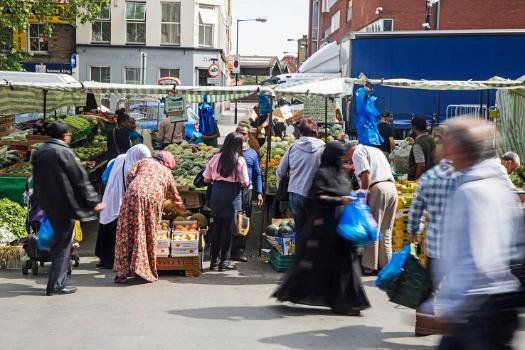Global collaborations in genomic health research

In collaboration with
- Vi Bui
- Bori Banflavi
- Erwan Pennarun
- Margherita Bigossi
- Colleagues in Genes & Health
We are working with partners in India, Indonesia and Thailand to develop national biobanks and global knowledge-sharing networks to deliver precision healthcare for diabetes.
There is a historic under-representation of ethnically diverse populations in health research, which has resulted in risk calculations and treatments that do not work equally well for everyone. By bringing international partners together, we are identifying gaps in our collective knowledge base and developing shared resources and research programmes to address them.
Linking data on genomics, health and demographics
 Our research links genomic data with information on health and demographics to understand the role that particular genes play in diseases and treatments. We are sharing our expertise in designing studies of this nature, and we're learning from our partners how to conduct high-impact research in low-resource settings. In all of our international biobank programmes, patient data stays within its country of origin under the guardianship of local health professionals and researchers.
Our research links genomic data with information on health and demographics to understand the role that particular genes play in diseases and treatments. We are sharing our expertise in designing studies of this nature, and we're learning from our partners how to conduct high-impact research in low-resource settings. In all of our international biobank programmes, patient data stays within its country of origin under the guardianship of local health professionals and researchers.
Find out more about each of our collaborations by expanding the sections below:
India
In India, the Madras Diabetes Research Foundation (MDRF) has set up the country’s first diabetes biobank, specifically to facilitate genetic research and effective treatment of diabetes in Asian Indians. The biobank links data from clinical systems and epidemiological studies to genetic data and bio samples. We worked with MDRF to purchase and set up a high-performance computing server. This has made it possible to store and analyse these large health datasets within India for the first time, and to use the data locally for direct patient care.
Indonesia
The population of Indonesia is very genetically diverse, making its health data a rich resource for research into which genes contribute to disease risk and outcomes. In collaboration with scientists at the Mochtar Riady Institute for Nanotechnology, we are leveraging this diversity by comparing Indonesian data with wider South Asian cohorts to study population genetics.
The Cipto Mangunkusomo hospital and the Faculty of Medicine, University of Indonesia, are building a bio-resource to study young-onset diabetes in Indonesia. We are co-developing research projects with them, using machine learning and genomics to improve diagnosis and management of type 2 diabetes.
Thailand
The Faculty of Medicine at Chiang Mai University in Thailand is currently setting up a type 2 diabetes biobank. Our collaboration with them is helping to establish which data will be most useful to collect to support successful longitudinal studies, and how best to design research programmes to use data from genomics and patient records. Our research team visited Thailand to train local researchers in the analysis techniques used in studies in the UK. We are also learning from their cost-efficient biobank infrastructure, which effectively tags and organises diverse laboratory samples and datasets.
Like South Asian populations, the Thai population has high levels of type 2 diabetes. There are also high levels of conditions related to low red blood cell count, which impact the validity of the most commonly used test for diabetes (the HbA1c blood test). Together we will study these genetic and health similarities with the aim of improving effective monitoring for people living with diabetes across diverse population groups.
Our partnership with Moneeza and the Queen Mary team is laying the groundwork for discovery sciences in metabolic diseases in India. It's also providing a training environment for Indian bioinformaticians and researchers to access and use large-scale indigenous genomic data.— Dr. R M Anjana, Madras Diabetes Research Foundation
Funding and support
Dr Moneeza Siddiqui is funded through the Precision Health: Population Health Data Science programme, funded by Barts Charity (MGU0504). Our international biobank programmes have additional funding from the UK government International Science Partnerships Fund (ISPF) and the British Council.





